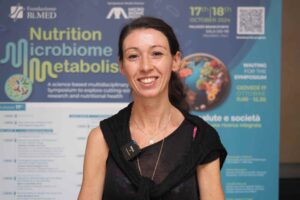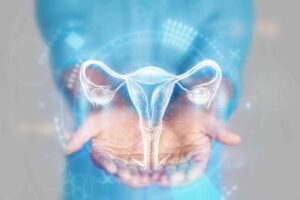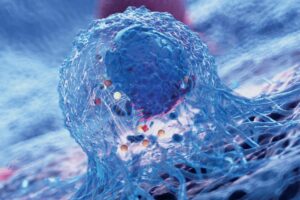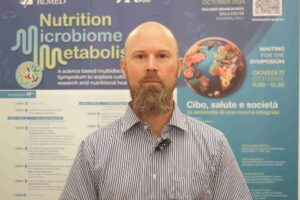What is already known
The infant gut is first seeded by microbes passed from the mother, and this early microbial colonization is important for building an optimal microbiota, which can sustain health later in life. However, it’s unclear how different factors, such as birth mode and location, influence the microbiota of infants.
What this research adds
Researchers collected and analyzed fecal samples from 73 infants and their parents for more than a year. Infants born at home or in hospitals showed different timings and compositions in their gut microbiota. Breastfeeding also appeared to complement the microbiota transmission, supporting the colonization and stability of beneficial bacterial strains during the first year of life.
Conclusions
The findings suggest that environmental factors are important for the development of a healthy microbiota.
The infant gut is first seeded by microbes passed from the mother, and this early microbial colonization is important for building an optimal microbiota, which can sustain health later in life. Now, researchers have found that where an infant is born — whether at home or at a hospital — affects the transmission of gut bacteria.
The findings, published in Cell Host & Microbe, suggest that environmental factors are important for the development of a healthy microbiota.
Previous research has shown that exposing cesarean-born babies to their mother’s microbiota shortly after birth can make their microbial makeup more similar to that of vaginally born babies. However, it’s unclear how other factors, such as birth mode and location, influence the microbiota of infants.
For more than a year, Marta Selma-Royo at the Institute of Agrochemistry and Food Technology in Valencia, Spain, and her colleagues collected and analyzed fecal samples from 73 infants, 21 born by cesarean section and 52 born vaginally. The team also collected fecal samples from the infants’ parents and performed analyses to identify and compare bacterial strains.
Birth setting
The infant microbiota is initially dominated by Escherichia coli and Bifidobacterium species, but it progressively diversifies and resembles that of an adult by 12 months, influenced by the introduction of solid foods.
Whether an infant is born at home or at a hospital influences the microbiota more than the delivery method, the researchers found. Infants born at home or in hospitals showed different timings and compositions in their gut microbiota.
In line with previous findings, birth mode also influenced the infant microbiota. Vaginal delivery facilitated the transmission of specific bacterial species, including Agathobaculum butyriciproducens, Ruminococcus torques and Bacteroides vulgatus, regardless of the birth location.
Bacterial seeding
Although birth mode and location were found to affect the composition of an infant’s microbiota, some bacterial species such as Bifidobacterium longum and Blautia wexlerae were transmitted consistently, regardless of the setting or delivery method.
By analyzing 27 human milk samples, the team also found that many species in the milk, such as Staphylococcus epidermidis, were also abundant in the infant gut during the first six months. However, the levels of these species in the infant gut decreased over the first year.
“Our results suggest […] that human milk could represent one of the sources of bacterial species seeding the infant microbiota during the first months of life.”











